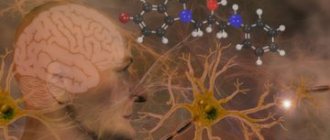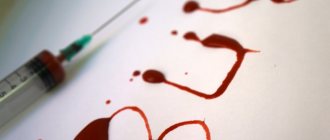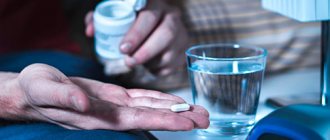What is depressive disorder
This is a mental disorder, accompanied by symptoms such as worsening mood, apathy, lack of interest in familiar things, pessimistic thinking, retardation of movements, and inability to feel positive emotions.
The patient's self-esteem decreases, sometimes accompanied by alcoholism and drug addiction (this is explained by the desire to drown out bad thoughts). Numerous articles have been written about depression, claiming that it can last for months or years. People often perceive their psychological state not as an illness, but as laziness and pessimism. Therefore, many of them do not seek professional medical help, feeling this way for months and years. According to statistics, every tenth inhabitant of the earth who has reached 40 years of age suffers from this disease (2/3 of them are women). After 65 years, the disease occurs three times more often. Among minors, only 5% experience this mental illness. It is important to contact a specialist in time so that he can diagnose it and begin psychotherapy. It is treatable in the vast majority of cases. Today's methods provide a high probability of success due to their effectiveness.
It is impossible to think that this disease arose only recently. It was described in antiquity, including by Hippocrates himself, who described melancholy, which has symptoms extremely similar to depression.
Its causes are varied: from significant emotional upheavals (death of a relative, loss of housing, dismissal) to completely insignificant ones. Sometimes a disorder can occur for no apparent reason.
A common factor is social. A person cannot withstand the high pace of life, failures at work, constant stress, and is worried about the difficult economic situation. This is how the endogenous type of depression manifests itself.
The root of the disease is also a lack of dopamine, norepinephrine, and serotonin, which occurs due to lack of sunlight. This is a seasonal form of the disease. One of the causes of mental illness is side effects from medications taken. The emotional state returns to normal after stopping the medication. Depression is caused by various diseases (Alzheimer's, concussion, schizophrenia, etc.).
Main symptoms:
- depressed state lasting at least 2 weeks;
- constant fatigue throughout the month;
- anhedonia (things you did before no longer bring positive emotions, surrounding events do not interest you);
- negative thinking, pessimism, suicidal thoughts;
- feelings of insignificance, fear, guilt;
- the person is incapable of concentrating and avoids making decisions;
- low self-esteem;
- increased or decreased appetite;
- insomnia;
- difficulties in communicating with others, conflicts with family and friends;
- Mental illness in children is characterized by nightmares at night, academic failure, alienation, and aggression.
A specialist will diagnose the disorder if symptoms persist for more than two weeks.
How to go out on your own
There are simple recipes on how to get rid of depression after heavy drinking. It should be borne in mind that self-cure is possible only in mild cases. To do this, it is advisable to organize at least a few days of rest, create the most favorable emotional atmosphere, and ensure peace of mind. The development of alcoholic depression is largely due to exhaustion of the body, so the most important measures to help improve the condition are proper organization of the daily routine, sufficient sleep, light nutritious food, and feasible activity.
You should not exhaust yourself with excessive physical activity, baths and saunas. Leisurely walks in the fresh air and a warm shower are suitable. You should not take serious pharmaceuticals without a doctor's prescription - this can worsen the condition. For anxiety and emotional instability, mild herbal remedies will help: motherwort, valerian, soothing herbal remedies. The main rule of recovery in the first days after binge drinking is moderation and self-care.
If there is no improvement within a week, you are haunted by anxiety and feelings of guilt, or suicidal thoughts appear, you need to contact a specialist - they know how to get out of binge drinking and depression without complications. Professional help using drug therapy and psychotherapy will help normalize your state of mind and avoid unwanted consequences.
How is depression treated?
According to WHO, about 80% of all those who seek help get rid of symptoms of chronic depression and restore mental health as a result of psychiatric treatment. Everyone has the right to maintain their mental health as normal as their physical health. Modern medicine can provide quality therapy when it occurs. To start it, you need to contact a doctor who treats depressed patients. You can’t go to the pharmacy and buy the first drug you like, or the one recommended by a friend or colleague. Taking the wrong pills will only worsen the patient's condition. It is also not recommended to try to diagnose the disease yourself by reading articles on the Internet - help should be professional. It consists of finding an approach to everyone and taking comprehensive measures (medicinal and non-medicinal).
The main methods used to get rid of symptoms:
- Medicines. The doctor prescribes anxiolytics, antidepressants, inhibitors, or mood stabilizers (for example, lithium) to the patient. Choosing the wrong medication can lead to the possibility of complications.
- Psychotherapy. May include behavioral therapy, psychoanalysis, and other psychotherapeutic areas. Conducted individually, in a group or with the family.
- Phototherapy. This method is often used in winter, since in winter the patient’s emotional state worsens due to the lack of natural sunlight. During the procedure, the patient is placed under bright light, which should compensate for the lack of sun.
- Electroconvulsive therapy. Electric current is used in extreme cases, if the patient is so depressed that he is unable to take medications on his own. Under the influence of current, amino acids are produced in the brain that promote the synthesis of mediators. It is the mediators who are responsible for our positive and negative attitudes.
When carrying out procedures for depression in a hospital, it is important that the specialist treats the patient kindly and reaches full understanding with him. The doctor chooses the types of therapy based on the symptoms:
- anxiety, its degree, how it manifests itself;
- frequent, rapid mood changes;
- presence of panic disorders.
When the disorder occurs, the patient is characterized by a sad, apathetic, hopeless state, a feeling of depression, and a lack of enthusiasm in household chores, at work, or even when engaging in hobbies. Everything ceases to make sense, to cause joy. There is a persistent feeling of guilt, vulnerability, weight loss against the background of a decrease in cravings for food. A common symptom is insomnia. A person does not get enough sleep and gets up tired in the morning.
Cognitive-behavioral psychotherapy is needed to relieve the following symptoms:
- social isolation;
- no purposeful activity or plans;
- passivity;
- lack of interest in pleasure and, as a result, life resembles a routine existence.
The goal of such therapy is to change the patient’s thinking and, as a result, his daily actions, which cause despondency and constant worry. Behavioral psychotherapists believe that depression is a behavior to which a person becomes accustomed, and the therapist must wean him from it.
Development of depression
Further, all manifestations worsen: attacks of melancholy become more frequent and lengthened, physical retardation becomes more pronounced, desire decreases until libido fades. Speech becomes impoverished, becomes monosyllabic, “dull,” and slow. Professional skills are partially lost.
Women have a tendency to self-blame. They consider themselves incapable of professional activity, unsuitable for family relationships, and incompetent in terms of raising a child. During this period, daily mood swings are common, with patients feeling worse in the morning than in the evening.
Where to go for help
A pessimistic attitude does not mean chronic depression. Mood may decrease due to natural life problems related to family, work, friends, personal life and other failures. After unpleasant events, healthy people gradually return to normal. Apathy and despondency pass. If they remain for a long time, you need to sound the alarm. The most severe types of the disease are characterized by the following symptoms:
- The patient is unable to satisfy his basic needs: prepare food, wash, brush his teeth.
- He lies in bed for a long time.
- Refusal to eat, lack of appetite.
- Dejection, thoughts of suicide.
If one of these symptoms occurs, you should think about the need for hospital treatment, since the sick person poses a danger primarily to himself. In the hospital, the patient will be prescribed the necessary medications, will undergo psychotherapy and, most importantly, the doctor will constantly monitor him. The clinic provides all conditions for the amendment.
A not so significant disadvantage of being there is boredom and the feeling that time is passing too slowly. But, in advanced forms of the disorder, this is the only effective way to overcome the disease, since the patient in this case needs the continuous supervision of the treating doctor.
Depression: symptoms&Co. What we see and what we don't see
Why can’t I fit into this world in any way, why am I so cramped in my own body, why is there depression and such an unwillingness to live, after all, everything is normal, everything is there for happiness. Why does it seem like there are two different people living inside me, one normal, loving life, and the other, on the contrary, as if dead and empty?..
What matters is not what a person looks like, but how he feels. Everything may look harmless. Depression is disguised. It happens that there are no obvious signs of clinical depression. A person also goes to work, does business, travels and even smiles - but he has already chosen the date and method of suicide. No matter how long depression lasts, it can be detected if you know what to look for.
What we see
Take a closer look. If the following signs are noticed, then the likelihood of depression is high:
- Selective communication, escapism. Still normal, but already a sure sign of introversion. A person needs a person, connections with other people are necessary for everyone, introverts too.
- Passion for spiritual practices. Still normal. This is the very search for which an inquisitive mind and a desire to comprehend the root cause of everything were given. Normally, a person quickly leaves areas that do not provide true answers and moves on.
- Sectarianism. Warning sign! Joining a sect may be caused by a desire to find like-minded people, it may be a way to relieve fear, it may be the same spiritual search. In any case, this is not useful, since the heads of the sects exploit their flock.
- Entering the virtual world, gambling addiction. An easy way to escape from a meaningless, joyless reality.
- Drugs. A harmful and dangerous way to numb a suffering soul.
- Passion for heavy music. Another way to drown out the pain of the soul.
- Passion for films in the apocalypse genre. Pictures that are in tune with the state relieve internal tension. Such a hobby is an alarming and dangerous signal.
- Words about death, hatred, suicide and apocalypse require special attention! It is important to understand that words are voiced thoughts, and thoughts precede actions. If such meanings are broadcast on a wall on social networks or in a conversation, or even occasionally slip through, you need to act immediately!
What we don't see
A diagnosis of depression occurs if the following symptoms are present:
- anhedonia: food and any pleasures lose their taste, you don’t want sex or money;
- apathy: lack of desires and, as a result, weakness;
- sleep disorder: binge sleeping or insomnia;
- intrusive negative thoughts: an unstoppable flow of many fragments of thoughts;
- reluctance to live: suicidal thoughts and plans;
- hatred: towards people and/or oneself;
- The question about the meaning of life and the lack of an answer to it is the root cause of depression, the main symptom that determines treatment.
From an early age I tried to understand the meaning of everything that was happening, the structure of everything that surrounds me, how it is all interconnected and how this environment relates to me.
Depression lasts as long as a person wants to know - and does not know who he is and what he is doing here.
The mode of ignorance can be very different. Doing science, you can reach seventy, teetering on the edge of a depressed mood, in constant anticipation of true revelation. Without reading, poetry and music, you can become addicted to drugs at the age of thirteen that create the illusion of fulfillment. Fanatically pursuing a career, you can only realize for the first time at the age of forty that everything material is uninteresting and empty. Or, while actively participating in the lives of those around you, suddenly stop while on maternity leave and feel the universal loneliness and meaninglessness of earthly existence.
Why does depression occur? There is a version that depression is a consequence of modern individualization and comfort, but this is not the whole truth. On the scale of humanity, depression is a consequence of the need to make a new evolutionary round. There is tension and readiness, but no action. At the individual level, this is a lack of understanding of one’s own nature, one’s own desires, tasks and abilities.
As soon as a person with the appropriate properties realizes that his greatest desire is to know the root cause of existence and that this desire one hundred percent coincides with his task and capabilities, everything changes. Strength and inspiration appear. The man seems to come to life. Ceases to feel unnecessary and the world meaningless.
How is treatment done in a hospital?
Before the course, the subject is required to do the following tests:
- blood analysis;
- diagnosis of the thyroid gland;
- analysis of the urinary system.
For the first two weeks, it is better for him not to leave the medical center, going outside, as he must be under constant supervision. After this period, the patient, on the contrary, is recommended to move more and breathe fresh air.
pros
:
The patient is under continuous observation. It is especially indispensable for those suffering from severe depression, which is characterized by suicidal thoughts. The medical staff feeds the patient and escorts him to the toilet.
A complex approach. Significant doses of antidepressants, antipsychotic drugs (for sleep disorders). If refused, they are forcibly administered intravenously. The course also includes vitamins, nootropics and essential amino acids.
Minuses
:
Not suitable for anxious and suspicious patients. The ward neighbors will negatively influence such patients, causing fear, lack of sleep, headaches, neutralizing the entire effect of therapy and making it completely useless.
Elderly people over 65 years old are characterized by heart disease, brain disease, diabetes, and other age-related pathologies. There are no doctors in the hospital who can solve the problem of these pathologies or provide emergency care.
Treatment of depression in Moscow takes place in modern medical institutions. The staff of the treatment center will do everything possible to pull a person out of chronic depression. We treat using modern equipment, and our staff consists of professionals.
Clinical picture of the disease: stages of depression
The disease occurs in several stages. Without proper treatment, it becomes chronic with periodic exacerbations.
initial stage
Characterized by a general deterioration in health. Typical:
- feelings of weakness, fatigue, powerlessness;
- sleep disturbances (usually very early awakenings);
- sentimentality, tearfulness;
- a general decrease in tone, accompanied by boredom, laziness, weakness, intolerance to physical activity, blues, and an almost constant feeling of discomfort;
- weakening of the urge to communicate, emotional contact;
- desire for solitude.
One of the first, “classic” symptoms of depression is the loss of the ability to rejoice, experience pleasant emotional sensations, and the lack of desire to engage in previously favorite activities and hobbies. A person is prone to a pessimistic assessment of his capabilities and prospects.
It is extremely difficult for an outsider to recognize changes in the patient’s behavior and mood at this stage of the disease, but such changes are noticeable to relatives and family members. At this stage, there are no indications for treatment of depression in a hospital, but you should contact a specialized specialist as soon as possible.
Cyclothymic stage
Accompanied by an increase and worsening of all signs of depression. Typically:
- noticeable deterioration in well-being (headaches, tachycardia, shortness of breath, a feeling of squeezing and heaviness in the abdomen, chest, other somatovegetative manifestations);
- stiffness of movements and speech, it seems that it is difficult for the patient to find words to express his emotions, which does not have the best effect on the quality of communication;
- the appearance of obvious melancholy, vague restlessness, anxiety, but such a feeling does not persist throughout the day, but occurs periodically, and lasts on average up to half an hour;
- a feeling of shame for one’s appearance, words, actions;
- obsessive thoughts about unsuitability for work, family relationships, communication with other people.
Melancholic stage
The frequency of attacks disappears. The patient is physically exhausted, he has no desire to do anything, emotions are either absent or very poorly expressed. The picture is classic for this stage of depression: shoulders are slumped, the back is hunched, arms hang limply along the body or lie on the knees. A person sits motionless in the same place for hours (and sometimes days) without feeling hunger or thirst.
Also characteristic:
- pallor of the skin (with a bluish or grayish tint);
- excessive dryness, flaking of the skin, impaired sweating;
- shallow breathing with periodic deep breaths;
- “dry” crying (without tears);
- lack of appetite.
The patient generally appears very aged. Brittle hair and nails, rapid appearance of new wrinkles, and weight loss are noted. Men are prone to constipation, and women are prone to menstrual irregularities. Speech is very poor - the patient simply and monosyllabically answers questions addressed to him, but is not the first to start a conversation.
Without timely help for depression, there is a high probability of progression of the disease and the development of severe affective psychoses and manic delirium.
How long is depression treated in a hospital?
Relapses of depressive disorder are not uncommon. If one has already happened, then the likelihood of the next one increases. If a patient has suffered the disease once, the probability of recurrence is 50%, after recurrence - 70%, then 90%, and so on. It is extremely important to make efforts to ensure that the first does not happen. It can be prevented by seeking help when the disease occurs.
Patients with pronounced symptoms should take medications for a long period as prescribed by a specialist. The treatment process may vary depending on the patient's condition. At the slightest improvement and relief from some symptoms, he should not quit the course (he may be convinced that this is enough). The doctor must convince the patient that it is worth going through to the end. With a relapse, it lasts longer (in proportion to the number of relapses the patient experiences).
Some older people suffer from long-term forms of depressive disorder that require long-term treatment and continuous monitoring.
How long does depression last?
Depressive states can last from several months to several years. The longer and more complex the disease progresses, the more severe the consequences of depression.
On average, a depressive episode lasts 6-8 months, but much depends on the type and pattern of the disease. According to various sources, recovery occurs:
- in 40% of patients – within three months;
- 20% - within six months;
- 20% - within a year;
- in 15% - for two years or more;
- in 5% - after 5 years.
As a rule, conditions caused by endogenous factors last longer and are more severe. Accordingly, depression of psychogenic origin passes faster. It is worth noting that the number of cases of independent recovery from depression is small - no more than 20-30%.
We recommend that you be wary of advice to “throw yourself into your work.” As for other “effective” recommendations, for example, “eat something delicious, do fitness, go to friends,” unfortunately, in many cases, patients are simply not able to follow them. The best cure for depression is a good doctor.
| | Can't cope with depression on your own? We recommend that you contact the clinic for treatment. |
Having problems? We are waiting for you! Our phone
Self-medication
Self-treatment at home is not the best way to get rid of depression. It is strongly recommended to consult a doctor. But he, in turn, can do little without the desire of the patient to recover from depression. The specialist must find out the roots of the disease in a confidential conversation and convince him that help is necessary. A doctor can help much faster and more effectively if the patient looks at the problem from the right angle. Close people need to persuade him to undergo treatment.
It happens that patients are disdainful of going to the clinic and simply buy antidepressants from pharmacies that were recommended to them or read on the Internet. Medicines are selected individually; taking random medications can only worsen your mental state.
Prevention
The most important thing is rest and sleep. It is recommended to follow a daily routine, go to bed and wake up at the same time. Healthy sleep lasts at least 7-8 hours. An equally important point is proper nutrition, which gives the body useful vitamin complexes. Vitamins strengthen both a person’s physical health and mental health. You need to get rid of bad habits.
A positive attitude is the best way to avoid depression. You need to find out what situations cause a bad mood and change your plans to avoid these stressful situations. You cannot take on impossible tasks. It is better to spend more time with family and friends, and if necessary, ask them for help. An active lifestyle is also the key to mental health. It is worth spending time on your hobbies and interests.
Depression is an extremely common mental illness today. But you can recover from it by simply seeking help in time, without being disdainful of it. After all, if you underestimate the scale of the problem, you can only make things worse for yourself.
Many shades of depression
Depression is more than just sadness. Everyone feels depressed, upset or unmotivated from time to time, but depression is much more than just being sad or in a bad mood.
Depressive disorder
is a mood disorder that affects the way a person thinks, feels and behaves. Signs and symptoms of depression can range from hopelessness and fatigue to loss of interest in life, physical pain and even suicidal thoughts.
There are many different types of depression
. Depression can be thought of as an umbrella term for a variety of disorders, some caused by events in your life and others caused by neurochemical changes in the brain.
Moreover, although some symptoms associated with various depressive disorders overlap, there are also some key differences. Remember, it is very important that you seek help from a PSYCHIATRIST
to get an accurate diagnosis and treatment you need.
1. Major Depressive Disorder (Clinical Depression)
Major depressive disorder, also known as unipolar or clinical depression, is characterized by
persistent feelings of sadness or lack of interest in external stimuli or activities.
- Loss of interest or pleasure in your activities
- Feelings of worthlessness or guilt
- Negative thoughts with an inability to see positive solutions
- Feeling restless or agitated
- Inability to concentrate, memory loss
- Irritability, anger
- Closedness and secrecy, need for privacy
- Various sleep disorders
- Fatigue and apathy
- Suicidal thoughts
- Weight loss or gain, decreased or increased appetite
2. Dysthymia (Persistent Depressive Disorder).
Dysthymia, also known as persistent depressive disorder, is chronic, mild to mild-to-moderate depression that lasts for years and interferes with daily life, work, and relationships. People with dysthymia often find it difficult to be happy even on typically joyful occasions. They may be perceived as gloomy, pessimistic or complaining when, in fact, the person is not to blame and is suffering from a chronic mental illness.
Symptoms of dysthymia may get worse and better over time, and the intensity of symptoms may vary, but symptoms usually do not go away for more than two months at a time.
3. Bipolar Depression (Depression in
Bipolar Affective Disorder )
With bipolar depression, you don't just feel "down";
your depression can lead to suicidal thoughts, which are followed by feelings of euphoria and endless bursts of energy. These extreme mood swings may occur frequently—for example, every week—or occur sporadically—perhaps only once or twice a year. Mood stabilizers, such as lithium, can be used to control the mood swings that occur with bipolar disorder, but people are also prescribed various medications, including antidepressants and atypical antipsychotics. 4. Postpartum Depression
The sad mood, depression and crying spells that follow childbirth are known as the “baby blues”. This type of sadness is often attributed to the major hormonal changes that follow childbirth. This condition can last 1-2 weeks and resolve on its own.
However, approximately one in seven women experiences a more severe and longer-lasting condition that does not resolve on its own and requires drug treatment. This is typical postpartum depression. Signs and symptoms include:
- Feeling depressed or sad most of the day for more than 1 month
- Feelings of detachment and estrangement from family and friends and even the newborn baby
- Loss of interest in activities, child care, including sex
- Changes in eating and sleeping habits
- Feeling tired most of the day and not feeling energized
- Feelings of anger or irritation, including towards a newborn baby
- Having feelings of anxiety, restlessness, panic attacks, or racing thoughts
- Fear of causing harm to the child (for example, throwing it out of the window, cutting it with knives, piercing the child’s eyes with a finger, etc.), which is why there is a fear of being alone with the child and a request from relatives to be constantly nearby
The exact cause of postpartum depression is unknown, but it is believed to be the result of a number of factors, including: physical changes caused by pregnancy; anxiety about motherhood; hormonal changes; previous mental health problems; lack of support; difficult pregnancy or childbirth and/or changes in the sleep cycle. 5. Seasonal affective disorder.
Seasonal affective disorder is a type of depression associated with changing seasons.
People suffering from low mood notice symptoms that begin and end around the same time almost every year. For many, symptoms begin in the fall and continue into the winter months, although depression can also occur in the spring or summer (but this is extremely rare). In either case, symptoms of depression, such as hopelessness, fatigue, and loss of interest or pleasure in activities
, begin to be mild and progress. Those who experience winter sadness also report the following unique symptoms:
- Heaviness in the arms and legs
- Increasing hours of sleep
- Carbohydrate cravings/weight gain
- Relationship problems
Treatments for seasonal affective disorder may include medication, psychotherapy, light therapy, or a combination of these methods to treat symptoms of depression. A therapist can help you identify patterns of negative thinking and behavior that contribute to depression, learn positive ways to cope with symptoms, and develop relaxation techniques that will help you regain lost energy. The exact cause of seasonal affective disorder is still unclear, although many hypotheses have been put forward regarding the cause of this disorder. It has been suggested that light exposure, low serotonin levels, high melatonin levels, traumatic life events, and even physical illness are associated with the onset of seasonal affective disorder. 6. Premenstrual dysphoric disorder.
Premenstrual dysphoric disorder is a cyclical hormonal mood disorder commonly considered the most severe form of premenstrual syndrome (PMS).
While up to 85% of women experience PMS, only about 5% of women are diagnosed with premenstrual dysphoric disorder.
While the main symptoms are related to depressed mood and anxiety, behavioral and physical symptoms also occur. To be diagnosed with premenstrual dysphoric disorder, a woman must have experienced symptoms for most of her menstrual cycles in the past year, and these symptoms must have had an adverse effect on work or social functioning. Premenstrual dysphoric disorder is a more serious condition than premenstrual syndrome (PMS). The symptoms present with PMS typically do not affect daily function and are less severe in intensity. While it is normal for women to experience mood swings in the days leading up to their period; symptoms of severe depression, anxiety, and suicidal thoughts do not occur with PMS. A group of antidepressants called selective serotonin reuptake inhibitors (SSRIs) may be prescribed.
Symptoms of premenstrual dysphoric disorder usually recur every month before and during menstruation. Symptoms usually begin 7-10 days before menstruation and decrease in intensity within a few days of the onset of menstruation. Symptoms completely disappear until the next premenstrual phase. 7. Situational Depression (Reactive Depression / Adaptation Disorder)
Situational depression, otherwise known as reactive depression or adjustment disorder, is a short-term, stress-related type of depression. It can develop after a person experiences trauma or a series of changes in their daily life. Examples of events or changes that can trigger situational depression include, but are not limited to: divorce, retirement, loss of a friend, illness, and relationship problems. Thus, situational depression is a type of adjustment disorder because it stems from a person’s struggle to come to terms with changes that have occurred.
8. Disruptive mood dysregulation disorder
Disruptive mood dysregulation disorder is a fairly recent diagnosis, first appearing in the Diagnostic and Statistical Manual of Mental Disorders (DSM-5) in 2013. The DSM-5 classifies it as a type of depressive disorder because children diagnosed with disruptive mood dysregulation disorder struggle to regulate their moods and emotions in an age-appropriate manner.
As a result, children with this type of disorder demonstrate frequent outbursts of anger in response to frustration, both verbal and behavioral.
.
In between outbursts, they experience chronic, persistent irritability
. Combining psychotherapy and parental management techniques is the first step toward teaching children coping skills to regulate their moods and emotions and teaching parents how to manage angry outbursts. However, medications may also be prescribed if these methods on their own are not effective. Children are unlikely to simply grow out of the crippling mood dysregulation disorder without learning to regulate their moods and emotions effectively. If you think your child may have a disruptive mood dysregulation disorder, seek advice from a child and adolescent psychiatrist for a diagnosis and effective treatment plan. Living with depression can feel like an uphill battle, but it's not something you have to face at all times. alone.
It is important to know that medical illnesses also increase the risk of developing severe depression. Depression can be caused by a number of diseases that affect the body's systems, or chronic diseases that cause constant pain. This is especially common among those who suffer from conditions such as:
- Cancer
- Cardiac ischemia
- Diabetes
- Epilepsy
- Multiple sclerosis
- Dementia
- HIV AIDS
- Parkinson's disease
- Systemic lupus erythematosus
- Rheumatoid arthritis
Moreover, depression can be caused by certain substances and medications, so be prepared to have an open and honest discussion with your psychiatrist about your alcohol consumption and any prescribed substance or drug you are taking.
If you think you are suffering from any of these different types of depression, we strongly recommend that you see a PSYCHIATRIST for the correct diagnosis, treatment and psychotherapeutic support you need.










